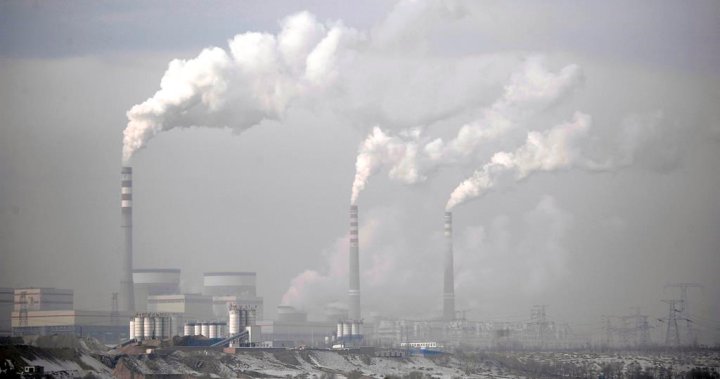Global coal consumption reached a new record in 2022 and is expected to stay near those high levels this year, the International Energy Agency (IEA) reported Thursday in their latest market update.
Coal consumption rose by 3.3 per cent to 8.3 billion tonnes in 2022. According to the IEA, strong growth in Asia in both power generation and industrial applications are continuing to outpace declines in Europe and the United States.
“In 2023 and 2024, small declines in coal-fired power generation are likely to be offset by rises in industrial use of coal, the report predicts, although there are wide variations between geographic regions,” the IEA said in a news release.
China, India and Southeast Asian countries together are expected to account for three out of every four tonnes of coal consumed worldwide this year. Demand from the two largest consumers, China and India, grew by over five per cent during the first half of 2023.
Meanwhile, coal demand in the European Union was minimal in 2022, “as a temporary spike in coal-fired power generation was almost offset by lower use in industry,” the IEA said.
The move away from coal in the U.S. is being heightened by lower natural gas prices, the agency says.

While regions like Europe and the U.S. are showing declines in coal use, the IEA says the new global record for coal demand highlights the need for stronger policies and investments in clean energy.
“Coal is the largest single source of carbon emissions from the energy sector, and in Europe and the United States, the growth of clean energy has put coal use into structural decline,” said IEA Director of Energy Markets and Security Keisuke Sadamori.
“But demand remains stubbornly high in Asia, even as many of those economies have significantly ramped up renewable energy sources. We need greater policy efforts and investments – backed by stronger international cooperation – to drive a massive surge in clean energy and energy efficiency to reduce coal demand in economies where energy needs are growing fast.”
In 2021, China and India already used twice as much coal together as the rest of the world. The IEA estimates that their share will be 70 per cent in 2023. The U.S. and European Union, which together accounted for approximately 40 per cent three decades ago, represent less than 10 per cent today.
According to the IEA, coal demand fell faster than previously expected in the first half of this year in the United States and the European Union – by 24 per cent and 16 per cent, respectively.
European coal is expected to continue to fall “as renewables expand, and as nuclear and hydropower partially recover from their recent slumps,” the agency said.
Some wealthy Western states and climate-afflicted island nations have been pushing for a phase out of fossil fuels, while resource-rich countries have campaigned to keep drilling.
U.N. Secretary-General Antonio Guterres said in June that countries must start phasing out oil, coal and gas – not just emissions – and demanded fossil fuel companies “cease and desist” measures that aim to “knee-cap” climate progress.

Canada’s 2023 budget took a big step toward luring more investment in clean technology to build a low-carbon economy.
In March, the Trudeau government unveiled a series of new green investment tax credits worth some C$35 billion, including almost C$26 billion for producing and transmitting electricity.
“Given the role that electricity is going to play in the decarbonisation of the Canadian economy, this is probably the most important federal budget ever for addressing climate change,” said Francis Bradley, the chief executive of trade association Electricity Canada.
Trudeau’s government had been under pressure to level the playing field with its largest trading partner since Washington passed massive uncapped incentives for clean energy investments in the Inflation Reduction Act (IRA) last year.
A TD Economics report in April showed that the financial support Canada is offering for the clean energy transition is competitive with the Inflation Reduction Act (IRA) south of the border.
— With files from Global News staff and Reuters.
© 2023 Global News, a division of Corus Entertainment Inc.




